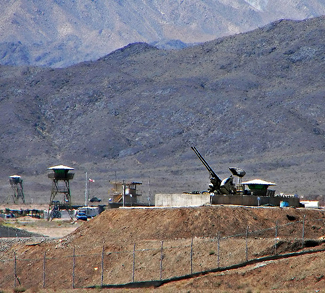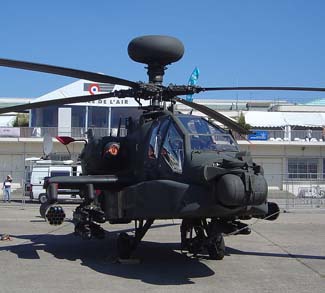It may have been a munitions factory in Sudan that exploded on Tuesday; but the message was meant for someone else entirely.
The government of Sudan has taken its case to the UN Security Council, claiming that the explosion at a military manufacturing plant in Khartoum on Tuesday was the result of an Israeli air strike.
Tuesday’s attack is not the first time that Sudan has accused Israel of a military strike. Back in 2011, Khartoum blamed Israel for an attack on a car in Port Sudan, which was rumored to have been carried out by an unmanned drone.
As of yet, there has been no public confirmation on the Israeli side, and it’s unlikely that this will change given Israel’s longstanding policy of official ambiguity regarding its capabilities and maneuvers in the region. However, there have been a few subtle nods towards the possibility of Israeli involvement, mostly via statements from Israeli government officials that paint Sudan as a terrorist state that is a threat to regional stability.
There is also a potential motive for an Israeli strike, as the munitions plant in question was thought to be producing arms for Hamas on behalf of Iran’s Revolutionary Guard. According to Israeli security officials, weapons from Sudan are frequently smuggled through the Sinai and into Gaza, sometimes on their way to further afield destinations such as Lebanon. A strike on Sudan sends the message that there’s a price to be paid for this kind of passive support for anti-Israeli elements within Gaza, and most importantly, it does so without directly involving Egypt and thus jeopardizing Israeli-Egyptian relations during this sensitive time. Though the jury is still out as to whether the latter goal was accomplished, as Egyptian President Mohamed Morsi has already come out and publically slammed ‘Israeli aggression’ against Sudan.
But this is a matter that doesn’t just involve Sudan and Israel. Iran looms large over these events, and not just because of Tehran’s alleged involvement in the arms manufacturing process. It seems likely that the Sudan strike was meant as a demonstration of military capabilities to prove that the Israeli Air Force (IAF) has the range necessary to strike Iranian nuclear facilities at Natanz and Fordo.
If the IAF is behind the strike in Sudan, then Israeli planes travelled over 1,200 miles, armed and able to and evade radar detection. This is roughly the same distance between Israel and the heartland of Iran’s nuclear program- the enrichment sites at Fordo (near Qom) and Natanz. Thus, this attack on the munitions plant in Khartoum may have been a test-run to ensure that the IAF has the necessary operational capabilities for a future strike on Iranian facilities.
Distance aside, a strike on Iran would have complicating factors that were not present in Tuesday’s strike. Sudan doesn’t have a robust air defense capability, which allows attacking fighters to take the most direct route and thus save on fuel. Moreover, if Israeli fighters were to take the direct route to strike Iranian nuclear facilities, as they allegedly did on Tuesday in Sudan, they would fly over several countries with sophisticated anti-air radar installations and thus risk losing the element of surprise.



